Army vets Low T risks and benefits from Testosterone therapy
Low testosterone (Low T) is a common condition that affects men, and army veterans are at an increased risk for this condition. Army Vets Low T risks can cause a variety of symptoms, including fatigue, decreased libido, and decreased muscle mass. Testosterone replacement therapy (TRT) is a treatment option for men with Low T, and it has been shown to be effective in improving symptoms and overall quality of life. In this blog, we will explore why army veterans are at risk for Low T and how TRT can help improve their health and wellbeing.Why Army Vets Low T Risks lead to Testosterone Therapy consideration
Army veterans are at an increased risk for Low T due to a variety of factors. One of the main reasons is exposure to stress and trauma during combat. The stress and trauma of combat can affect the hypothalamic-pituitary-gonadal (HPG) axis, which regulates the production of testosterone in the body. When the HPG axis is disrupted, it can lead to decreased testosterone levels.In addition to stress and trauma, other factors that can contribute to Low T in army veterans include:- Age: As men age, their testosterone levels naturally decrease peaking at 19 and declining 1-2% in the best of conditions. Army veterans who are older may have accelerated their decline through stressful service.
- Injuries: Army veterans who have suffered injuries, particularly to the testicles or TBI (traumatic brain injury), may experience decreased testosterone production.
- Medications: Certain medications, such as opioids and steroids, can decrease testosterone production.
- Obesity: Obesity is a risk factor for Low T, and many army veterans struggle with weight gain after leaving the military.
- Sleep apnea: Sleep apnea is common among army veterans, and it has been linked to decreased testosterone production.
Symptoms of Low T in Army Veterans
The symptoms of Low T in army veterans can vary depending on the severity of the condition. Some common Low T symptoms include that patients on TRT programs see improvements in:- Fatigue: Low T can cause fatigue and a lack of energy.
- Decreased libido: Army veterans with Low T may experience a decrease in sex drive.
- Decreased muscle mass: Low T can cause a loss of muscle mass and strength.
- Weight gain: Low T can cause weight gain, particularly around the midsection.
- Mood changes: Low T can cause mood swings, irritability, and depression.
- Erectile dysfunction: Low T can contribute to erectile dysfunction.
Benefits of Testosterone Replacement Therapy
TRT can be an effective treatment option for army veterans with Low T. Some of the potential benefits of TRT include:- Increased energy: TRT can help boost energy levels, reducing fatigue and improving overall quality of life.
- Improved libido: TRT can help increase sex drive and improve sexual function.
- Increased muscle mass: TRT can help increase muscle mass and strength.
- Weight loss: TRT can help promote weight loss, particularly around the midsection.
- Improved mood: TRT can help improve mood and reduce symptoms of depression and irritability.
- Improved bone density: TRT can help increase bone density, reducing the risk of osteoporosis.
Risks and Side Effects of Testosterone Replacement Therapy
While TRT can be an effective treatment option, it is not without risks and side effects. Some potential risks and side effects include:- Increased risk of blood clots: TRT can increase the risk of blood clots, which can be dangerous. Make sure your provider tests for and reviews Hematocrit levels.
- Acne: TRT can cause acne and other skin reactions.
- Breast tissue growth: TRT can cause breast tissue to grow in some men if Estradiol levels and the ratio of Total Testosterone : Estradiol is left un checked and not managed.
- Sleep apnea: TRT can worsen sleep apnea in some men
Army vets Low T risks and benefits from Testosterone therapy
Hormone Therapeutics March 21st, 2023
Posted In: Low T Info, Testosterone Therapy
Tags: benefits of testosterone, benefits to your body, depression, erectile dysfunction, fatigue, hormone replacement therapy, low t, testosterone levels, testosterone therapy
Testosterone Therapy for Military? Pentagon Considers Hormone to Boost Combat Performance

The Department of Defense has been studying testosterone therapy for military, finding out if it could keep the brain and muscles working optimally even during long periods of combat.
Medical researchers told that when troops are engaged in extended hours of physical activity such as contingency and military operations, they’re unable to take the calories necessary to endure the high mental and physical function.
The caloric deficit, which in some cases reach as much as 50 to 60 percent below the needed amount, may result in fatigue, muscle, cognitive decline and in men, a decline in testosterone. This leaves them susceptible to illness, wounds, injury or death.
Researchers at Pennington Biomedical Research Facility and the Army Research Institute of Environmental Medicine of Louisiana State University has conducted a study to know if keeping a normal testosterone levels in times of calorie restriction could boost combat performance or at least lessen the negative effects.
This study of testosterone therapy for military will provide insight on the role of testosterone in keeping agility, strength and brain functions.
Issues on Obesity in US Military
The study called ‘Optimizing Performance in Soldiers Study’ is ongoing at Baton Rouge, Louisiana. It is participated by 50 men, with ages 18 to 39. In the first phase, participants will be given food and monitored on an outpatient basis. In second phase, they will be living at the research institute, eating the same amount of calories as military men would consume in the battleground. Further, they will be undergoing rigorous physical activity, simulating the pressure of combat and hitting a caloric deficit of 55 percent below the energy expended.
In this phase, half of the subjects will be given weekly testosterone therapy for military shots to keep their levels of hormone while the rest will get a placebo. After the 28-day Phase Two, the participants will go back to their normal levels of exercise and food, and will be watched for weight gain.
The goal of the experiment is to check if they can avoid a soldier from muscle break down during calorie restriction and if they will be better able in performing a repeat mission. They try to look if not keeping the right levels of hormones could worsen their performance on the next training exercise or the next mission.
The Testosterone therapy for military study is not geared in knowing whether soldiers could transform into super warriors through testosterone injections. Rather, this $5 million research is aimed toward high-intensity stressful conditions done by combat arms troops and special operations personnel. In a nutshell, this is only ideal for the most extreme conditions.
The study is only one of the several studies of the Defense Department to discover the influence of supplements and diet on muscle mass and cognitive function.
The Air Force Research Laboratory has teamed with the Center of Nutrition, Learning and Memory, which is a partnership between the Abbott Laboratory and the University of Illinois, on how the nutrient lutein can help enhance brain performance.
Lutein is a pigment present in many fruits and vegetables. It plays an important role in learning, memory and cognition. They are studying if Omega-3 fatty acids can help special operations soldiers and recruits concentrate.
The study aims to learn if they can improve cognitive function even under stress since these young people who undergo the Infantry Basic Officer Leaders Course and the Ranger School are definitely feel stressed and pressured during certain times in the programs.
Nutrition is a very important part of a soldier’s fitness but researchers of testosterone therapy for military study may unravel more insight into the effect when troops cannot eat or drink sufficiently to maintain high function level.
Testosterone Therapy for Military? Pentagon Considers Hormone to Boost Combat Performance
Saleamp Design February 17th, 2017
Posted In: Testosterone Therapy
Tags: brain performance, calorie restriction, cognitive function, combat performance, lutein, nutrition, obesity, Omega-3 fatty acids, testosterone, testosterone injections, testosterone therapy, testosterone therapy for military
9 TRT Mistakes You Should Know
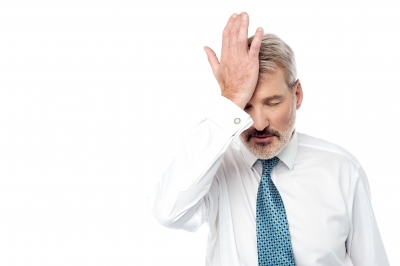 Here are some of the most common TRT mistakes that patients and even doctors make when following a testosterone therapy.
Here are some of the most common TRT mistakes that patients and even doctors make when following a testosterone therapy.
TRT Mistakes #1: Choosing a treatment plan that does not suit your personality or lifestyle
Many TRT doctors only prescribe the testosterone protocol they are comfortable or familiar with, whether it is gel, injection or even pills. However, not all protocols fit every person’s personalities or lifestyles. For instance, if you sweat a lot or do lots of workout, using transdermal patches or creams won’t be as effective as testosterone injection as the testosterone content of transdermal patches won’t be completely absorbed.
Another thing, if you are afraid of needles, testosterone injection will surely be the most uncomfortable situation. Say, you are fine with needles, but what if your doctor does not want to teach you how to inject on your own? Do you have time to drive to his office every week for your injection? Does it fit in with your schedule?
Look for a doctor who knows all TRT protocols and is diligent to ask you about your personality and lifestyle. Otherwise, you might end up discontinuing a TRT protocol because it didn’t suit your lifestyle, your work or your personality.
TRT Mistakes #2: Taking the wrong dose
When you encounter a person who speaks that TRT didn’t work for him, it often has to do with the dosage. You have to understand that testosterone replacement therapy varies from patient to patient. A dosage that could increase a person’s total T to 700 may only bring your up to 400. In addition, a total testosterone level of 700 might be enough for one person, letting him enjoy all the benefits of TRT but for you, it might not be enough.
The dosage and its frequency have to be adjusted from time to time so you make the most you can out of TRT.
TRT Mistakes #3: Cycling testosterone
Maybe because of reading too much bodybuilding magazines, some patients assume that testosterone should be cycled. Cycling is only suitable for users of anabolic steroids whose main goal is to add more muscle mass or enhance performance. However, it is not appropriate for TRT.
Simply put, when you use TRT, your testes take a rest from manufacturing testosterone. If you just stop TRT immediately, you are left with nearly zero testosterone in your body, and at this point, everything goes south. Decreased libido, weight and depression set in. This means that all the benefits you enjoyed with TRT revert. If you decide to stop using testosterone for some reason, work with your doctor to ensure you’re doing it effectively and safely.
TRT Mistakes #4: Wrong Management of Possible Side Effects
Nearly all possible TRT side effects can be managed easily, whether they include hair loss, acne, moodiness or an increase in hematocrit or PSA (prostate-specific antigen). It is important to manage these side effects effectively as it is necessary for the long-term success of your testosterone therapy.
Of course, no one wants to experience these side effects through TRT only to be replaced by another set of side effects. Oftentimes, it is only a question of dosage adjustment or the delivery system but they may sometimes require extra medications.
TRT Mistakes #5: Not living a testosterone-friendly life
Smoking, being overweight, drinking in excess, not having enough sleep, avoiding exercise and taking blood sugar for granted are some of the biggest TRT mistakes that you should avoid. These shouldn’t be part of your lifestyle. Testosterone replacement therapy can create a 180 degree turn in your life. It can make you feel like in your 20s or 30s.
All those bad habits mentioned can greatly deplete your testosterone reserve and no amount of TRT can compensate to offset such kind of lifestyle. It’s best to practice as many healthy habits as possible to make your TRT experience better.
TRT Mistakes #6: Poor compliance
Testosterone therapy requires 100 percent commitment. Like any medication, if you forget to inject or rub cream after a morning shower, it’s not going to give you its expected results. Failing to administer or apply it and it will not work and the long-term outcome will be compromised and unsatisfying.
In addition, poor compliance to TRT has its own inherent consequences. When your T levels keep on fluctuating from highs to lows, you could experience possible swings in your performance, energy and functionality.
There are lots of ways to help you remember your application or injection schedule. You can mark your calendar beforehand, place notes on your fridge or use mobile apps. Find one that will work for you.
TRT Mistakes #7: Choosing the wrong doctor
Today, more and more dentists now provide Botox injections, but that is definitely not part of their training and they are not more qualified, as far as education is concerned, to provide Botox more than a plastic surgeon or a dermatologist. But many dentists see it as a way to augment their income.
On a similar note, many doctors have joined the TRT bandwagon. They do not have the expertise to give testosterone, but they simply do it as a way to increase their income. The problem is, there’s more to TRT than just giving a prescription. Testosterone therapy isn’t just simply elevating your T levels, it is helping your patients find their optimal T levels.
Further, you need one who is knowledgeable in managing any possible side effects of TRT, including other aspects of the TRT science such as the adjunctive therapies.
Finally, you need one who applies what he prescribes. In this case, a doctor who is under TRT himself, who lives a healthy lifestyle and exercises, has the firsthand knowledge into TRT compared to a conventional doctor who only prescribes TRT on the side.
Consider the possible costs before choosing a doctor as well. Do your own homework in finding the right doctor for you.
TRT Mistakes #8: Overlooking estrogen levels
As mentioned in Number 2, the leading cause for having less stellar results with TRT is wrong dosage. The second most common problem among patients who say TRT didn’t work for them is the failure to keep track of their estrogen levels.
When the body metabolises testosterone, it turns into other chemicals such as DHT (Dihydrotestosterone) and estradiol. Estradiol is a metabolite of estrogen, the major hormone in women. Though men require a certain level of estrogen to maintain vascular health, excessive levels can cause gynecomastia, weight gain, extra body fat and subtle mental changes. Excessive estrogen can also hinder the benefits of TRT.
This problem can be very easy to control, but first, you have to find a capable TRT doctor to recognize and fix it.
Hormone Therapeutics Testosterone Therapy
Being a leading provider of low testosterone therapy solutions, we are always looking for newer ways to improve blood testosterone levels for our patients. We believe on improving testosterone levels with not only different testosterone treatment options that we offer, but also with diet, exercise, and therapeutic methods. Over the years, we have seen that our patients have greatly benefited from our Low-T therapy and treatment solutions, and our network of patients have grown across across all major cities of United States, including: Los Angeles, Houston, Miami, Chicago, Jersey City, and Seattle.
If you or a loved one is dealing with low blood testosterone levels, contact us today to get a free evaluation of your Low-T symptoms and see how our treatment options can help you with your low testosterone.
Sign up today and Get our ebook, ‘Naturally Increase Your Testosterone Levels’ absolutely FREE.
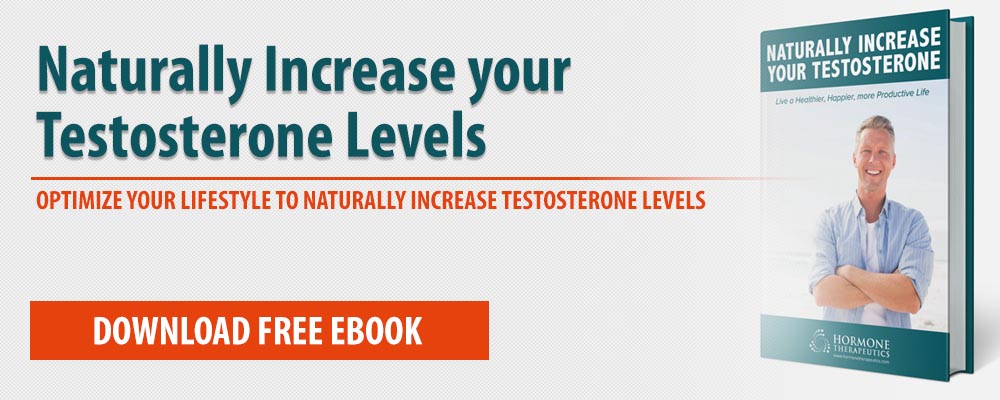
9 TRT Mistakes You Should Know
Saleamp Design January 20th, 2017
Posted In: Testosterone Therapy
Tags: cycling, DHT, dihydrotestosterone, dosage, dose, E2, estradiol, estrogen, gynecomastia, testosterone, testosterone mistakes, testosterone protocols, Testosterone replacement therapy, testosterone side effects, testosterone therapy, TRT, TRT dose, TRT mistakes, TRT protocols, TRT side effects
How Sleep Increases Testosterone
Did you know that sleep increases testosterone level? Most Americans today are sleep deprived. Many are proud of it like a working badge of honor. Many are just burning the candle at both ends. Lack of quality, regenerative sleep is a huge factor in the declining testosterone levels in men.
How Sleep Increases Testosterone Level
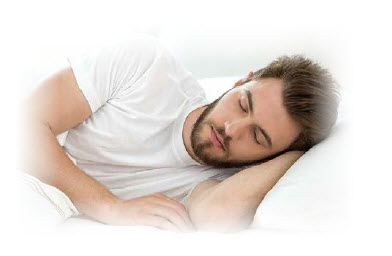 Most of our testosterone is produced when we are in a deep REM sleep. This is why our Testosterone levels peak when we wake up and are lowest right before we sleep. It is also one of the reasons behind “Morning Wood.” If you do not experience Morning Wood consistently, you should contact Hormone Therapeutics to learn about and get tested for low T.
Most of our testosterone is produced when we are in a deep REM sleep. This is why our Testosterone levels peak when we wake up and are lowest right before we sleep. It is also one of the reasons behind “Morning Wood.” If you do not experience Morning Wood consistently, you should contact Hormone Therapeutics to learn about and get tested for low T.
If you do not get enough deep quality sleep, your body will not produce testosterone needed for optimized health. University of Chicago researchers found young, healthy and virile men who got less than five hours a night of sleep for just week had 10-15% lower testosterone levels than when they were fully rested.
Another study measured testosterone levels in the morning and showed that the men who slept for 4 hours had an average testosterone level of 200-300 ng/dl. Comparatively, men who slept for 8 hours had average testosterone levels of 500-700 ng/dl.
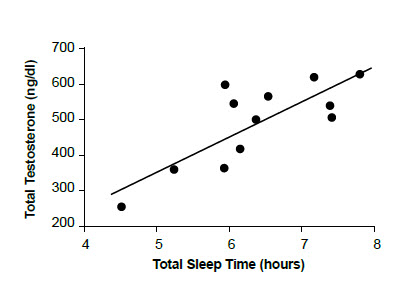 Not only does sleep increases testosterone, but it is also critical in managing cortisol. Cortisol is a stress hormone that is very destructive to testosterone levels when in excess. Make sure to focus on and improve the quality of your sleep. Reduce exposure to blue light in the evening, turn off your computers and cell phones at night, avoid caffeine in the afternoon and evenings, and take warm showers before bed.
Not only does sleep increases testosterone, but it is also critical in managing cortisol. Cortisol is a stress hormone that is very destructive to testosterone levels when in excess. Make sure to focus on and improve the quality of your sleep. Reduce exposure to blue light in the evening, turn off your computers and cell phones at night, avoid caffeine in the afternoon and evenings, and take warm showers before bed.
Sleep Increases Testosterone: How to Improve Sleep
- Sleep in complete darkness. No nightlights or glowing alarm clocks.
- Close wi-fi networks to shut down electromagnetic frequency waves
- Get exercise during the day. Melatonin can help as the hormone secreted by the pineal gland to bring on sleep and reset your body clock.
- Sleep in the cold . . . and naked! For centuries we slept in the cold and our bodies adapted to this natural state and testicles produce optimally when they are colder than your body temperature (why boxers are better than briefs).
- No computer or smart phone bright displays before bed and no blue lights. The blue light in many electronics impairs the pineal glands ability to function optimally.
- Simple carbs an hour or two before bed increases insulin levels which increases energy temporarily before you crash.
- Quality proteins, prior to sleep, and amino acids like L-tryptophan increases melatonin production during sleep.

Hormone Therapeutics aims to help people looking to improve and optimize their health through natural means or through the guidance of our physicians.
Don’t miss out our free weekly tips and news on Low T, hormone balancing, healthy living, nutrition and a lot more.
Want more?

Sign up today and Get our ebook, ‘Naturally Increase Your Testosterone Levels’ absolutely FREE.
How Sleep Increases Testosterone
Saleamp Design December 2nd, 2016
Posted In: Health & Wellness
Tags: amino acid, blackout, blue light, body clock, body temperature, cortisol, darkness, deep sleep, insulin, L-tryptophan, light, melatonin, morning erection, phone, pineal gland, protein, regenerative sleep, REM sleep, rest, sleep, Sleep Increases Testosterone, stress, testicles, testosterone therapy
Best Brain Health Exercises to Improve Cognitive Performance
Is Brain fog or memory loss impacting your life in a growing or worrisome way? Alzheimer’s and dementia are most frequent in 65+ men but cognitive issues like brain fog and forgetfulness are getting more are more frequently seen in younger men. These brain health and memory issues could be from Andropause.
What are the best brain health exercises?
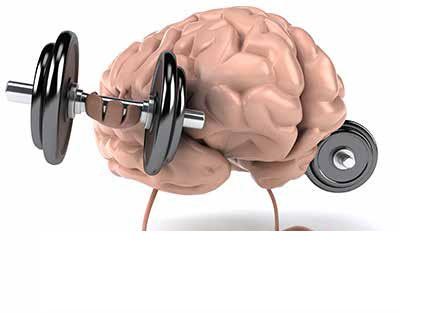
Exercise has always been seen as one of the key pillars to keep the body fresh and mind sharp and healthy as we age. But what type of exercise is best? Are they all the same?
Researchers examined the results of brain health on rats after running them through varied exercise programs. According to the researchers at the University of Jyvaska in Finland, below are the best brain health exercises to do.
- Running
- Weight Lifting
- High Intensity Interval Training (HIIT)
These three brain health exercises were identified and tracked across three groups of rats for a seven week period. The researchers injected the rats’ brains with a fluid that allowed them to track activity in the hippocampus of the rats. This activity identified the development of new brain cells anywhere in the brain but focused on the hippocampus because this is the area of the brain associated and used for learning and memory. The researchers hypothesized that whichever exercise stimulated new brain cell creation for use in learning or memory would help measure that exercise’s ability to stimulate brain growth, development and regeneration.
Brain Health Exercises Experiment Activities
Running: rats jogged on wheels in their cages
Weight Lifting: rats climbed walls with weights attached to their tails
HIIT: rats were placed on treadmills and forced to sprint/keep up at varying speeds and intervals
 Results
Results
Running was the winner!! The rats jogging on a where showed more neurogenesis than the other groups of rats. The HIIT rats experienced some improvement, however, the weight trained rats showed no improvement. The Finnish scientist concluded that “in order to promote [adult hippocampal neurogenesis] maximally, exercise should be aerobic and sustained.”
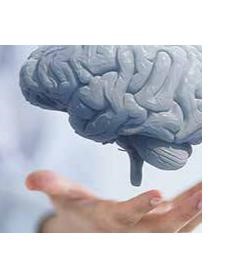 Maintaining a healthy brain healthy provides many other physical benefits. Mindful meditation has shown to reduce stress, heart rate and reduce inflammation in the body.
Maintaining a healthy brain healthy provides many other physical benefits. Mindful meditation has shown to reduce stress, heart rate and reduce inflammation in the body.
Testosterone helps regulate cortisone, which is a stress hormone, and affects the efficiency of our brain’s neurotransmitters. When men suffer from decreased testosterone levels they lose some ability to effectively regulate cortisol levels, which can cause neurotransmitters malfunction and lapses in memory. This is one of the reasons why cognitive issues are highly correlated with decreasing testosterone levels and you see higher incidence of cognitive impairment in men than you do in women.
 Testosterone Therapy to Improve and Maintain Brain Health
Testosterone Therapy to Improve and Maintain Brain Health
If these symptoms, cognitive issues, brain fog or memory issues are creeping up on you do not wait too long to start doing something about it. If they are affecting you, one potential solution is through testosterone and hormone replacement therapy. Contact Hormone Therapeutics and talk to our experts and find out if we can help you.
Hormone Therapeutics aims to help people looking to improve and optimize their health through natural means or through the guidance of our physicians.
Don’t miss out our free weekly tips and news on Low T, hormone balancing, healthy living, nutrition and a lot more.
Want more?

Sign up today and Get our ebook, ‘Naturally Increase Your Testosterone Levels’ absolutely FREE.
Best Brain Health Exercises to Improve Cognitive Performance
Saleamp Design November 29th, 2016
Posted In: Health & Wellness
Tags: brain fog, brain health, brain health exercises, cognitive, cortisol, exercises, impairment, inflammation, meditation, memory, memory loss, neurogenesis, neurotransmitters, stress, TBI, testosterone therapy, traumatic brain injury
How does Testosterone Affect Sexual Health?
Can testosterone improve sexual health?
Many factors fuel the sexual health of men as well as their sexual performance, ability to perform and changes in their ability to function as they once could. Low testosterone plays a significant factor in all of these and treating Low T can improve interest in sex, sexual function and sexual performance.
The Effects of Low T on Sexual Health
While we do understand that testosterone production comes from a healthy HPA Axis, or communication between your Hypothalamus, Pituitary Glands, Adrenals and Testicles, science still does not understand exactly how testosterone improves sexual health or performance. As you probably noticed in High School, College or amongst your friends, there is no normal level of sexual interest amongst men or women.
Like your testosterone levels, it peaks around 19 and usually slowly declines for the rest of your life. Each person takes a different path, however, and declining sexual interest is typically tied to declining testosterone levels. These levels can follow a steady decline, or can be accelerated by health issues, stress, poor sleep and even by keeping sexually active. Many men can lose sexual interest at normal testosterone levels or maintain sexual health even at low testosterone levels but as testosterone levels get depleted it will universally effect sexual interest and performance.
One study of Men in the NE of the US showed 11% of men had a lack of sex drive. The researchers also found 28% of men with low testosterone levels had a low libido which means that men with low testosterone levels were 256% more likely to have low sex drive or low libido. The average age of the study participants was 47.
Low Testosterone and Erectile Dysfunction

Erectile Dysfunction, or ED, can be caused by many health problems including low testosterone, atherosclerosis (hardening of the arteries), diabetes, high blood pressure and high cholesterol. Those last three items all cause hardening of the arteries. If they are damaged, the penis has difficulty dilating and bringing sufficient blood flow required for an erection. Testosterone therapy can lead to increased libido and interaction and connection between the brain and penis.
Viagra is an example of an oral PDE5 inhibitors that encourage an increase in nitric oxide which dilates the blood vessels and encourages more blood flow to the penis. Three potent selective PDE5 inhibitors (sildenafil (Viagra; Pfizer), tadalafil (Cialis; Lilly), and vardenafil (Levitra; Bayer)) are currently available. Testosterone therapy will often increase the libido and sexual function to erase Erectile Dysfunction, but often our physicians will prescribe a combination with PDE5 inhibitors as well.
Studies are showing that men with classic hypogonadism, or low testosterone, have a reduced response to PDE5 inhibitors and see a significant response improvement with Testosterone Therapy. For patients who fail to see ED improvement following TRT and PDE5 inhibitors we can prescribe and test the direct injectable Trimix.
The Connection of Testosterone Levels and Sexual Health
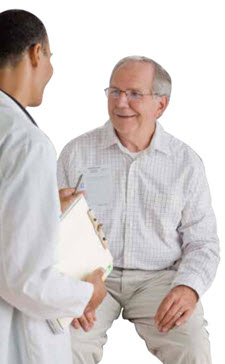 While this sounds like a juvenile sex joke, we are now seeing that lowered testosterone levels lead to a decreased sex life, but that a decreased sex life also can lower ones testosterone levels in a study at the University of Sydney in Australia.
While this sounds like a juvenile sex joke, we are now seeing that lowered testosterone levels lead to a decreased sex life, but that a decreased sex life also can lower ones testosterone levels in a study at the University of Sydney in Australia.
Researchers followed 1,700 men over the age of 70. The study asked questions and measured a number of things. The study tracked the ability to keep and maintain an erection. It measured the frequency that sexual activity led to ejaculation (through masturbation or sexual intercourse). The study also tracked libido and sexual health versus earlier times in their lives.
During the study, all of the men had blood tests regularly taken and the following tests measured: Total Testosterone, Free Testosterone, Estrogen, SHGB and some other hormones.
Researchers discovered a 10% reduction in testosterone levels led to a noticeable decrease in sexual activity but no change in the number of erections. Another study showed that testosterone levels increased on night after sexual activity without any increase on nights where there was no sexual activity. Physicians are concerned that a lack of sexual activity can accelerate low testosterone.
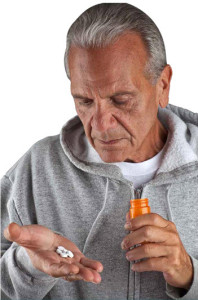 A further study showed that men taking Cialis had higher testosterone levels than men taking Viagra. Both drugs are PDE5 inhibitors to boost nitric oxide and blood flow to the penis. Cialis, however, last 36 hours for most people rather than 6-8 hours. Cialis users typically have more intercourse over this extended time period.
A further study showed that men taking Cialis had higher testosterone levels than men taking Viagra. Both drugs are PDE5 inhibitors to boost nitric oxide and blood flow to the penis. Cialis, however, last 36 hours for most people rather than 6-8 hours. Cialis users typically have more intercourse over this extended time period.
The researchers concluded that “as it is unlikely that the two drugs have a different direct effect on the pituitary-testis axis, this effect is probably due to the higher frequency of full sexual intercourse.”
A Chinese study observed a group of men that abstained from ejaculation for one week and had their testosterone levels tested each day. Research showed that abstaining for 6 days had no effect on testosterone levels, however, on the seventh day the testosterone levels surged to 145.7% of the baseline then plummeted on the 8th day.
The researchers believe the testosterone surge was the result of a negative feedback suppression of Luteinizing hormone (LH secretion) which is essential for testosterone production.
Hormone Therapeutics aims to help people looking to improve and optimize their health through natural means or through the guidance of our physicians.
Don’t miss out our free weekly tips and news on Low T, hormone balancing, healthy living, nutrition and a lot more.
Want more?

Sign up today and Get our ebook, ‘Naturally Increase Your Testosterone Levels’ absolutely FREE.
How does Testosterone Affect Sexual Health?
Saleamp Design November 15th, 2016
Posted In: Low T Info
Tags: atherosclerosis, Bayer, blood flow, boner, Cialis, diabetes, dilates, ED, erectile dysfunction, erection, high blood pressure, high cholesterol, hypogonadism, inhibitors, intercourse, Levitra, LH, LH secretion, libido, Lilly, Lutenizing hormone, nitric oxide, PDE5, PDE5 inhibitors, penis, Pfizer, pituitary, sex drive, sexual health, sexual performance, sildenafil, tadalafil, testes, testicles, testosterone level, testosterone therapy, trimix, TRT, vardenafil, Viagra
Revealed: Testosterone Therapy May Enhance Sexual Drive and Energy Levels
 In a major new study published in the New England Journal of Medicine, testosterone therapy was found to improve physical ability and mood as well as sexual function. The study was a collaboration of researchers from 12 medical centers spanning the United States.
In a major new study published in the New England Journal of Medicine, testosterone therapy was found to improve physical ability and mood as well as sexual function. The study was a collaboration of researchers from 12 medical centers spanning the United States.
Mark E. Molitch, MD, an endocrinologist, was one of the authors of the study. Dr. Molitch is the Martha Leland Sherwin professor in medicine-endocrinology at the Northwestern University Feinberg School of Medicine.
“In recent years, talk about low testosterone and its treatments have become part of the public discussion,” explained Molitch. “Yet questions have always lingered about the treatment’s effectiveness and safety. I believe the results of this large, nationwide study will provide doctors and patients answers and guidance they’ve been looking for.”
Link between Testosterone, Mood, Libido and Physical Health
The team’s purpose was to determine the link, if any, between testosterone levels and the mood, libido, and physical ability of men over the age of 65. It is a well-established fact that a man’s testosterone levels and production decrease as he ages. Many men also experience lowered sex drive and energy levels as they become older, tiring and fatiguing more easily. For the first time, low testosterone has been established as the cause of these symptoms.
Testosterone Therapy Study Grant
Previously, the Institute for Men reported that there was insufficient evidence of testosterone therapy’s beneficial effects, if any. A grant from the National Institute on Aging and National Institutes of Health funded the new study to determine low testosterone could be the cause of what many consider the normal effects of aging.
Health Study on Testosterone Therapy
The subjects of the study were 790 men, all of whom were over the age of 65 and tested for low blood testosterone, as well as suffering from decreased sexual desire and physical function. Some participants in the study were given testosterone treatments in the form of a gel to apply directly to the skin. The medication increased the subjects’ testosterone levels to the normal range for men aged 19-40. The treatments and study of their effects lasted for over a year.
The study participants who received the testosterone treatments did not report increased energy, but their mood, libido, and physical function did improve. By measuring the distance walked in six minutes, the researchers were able to determine a small increase in the physical abilities of men in the study. There was also a decrease in symptoms of depression, such as feelings of sadness and listlessness.
“Men in the study experienced an increased sexual desire and small improvements in their mood and physical function,” explained Molitch. “Importantly, there was no evidence of an increase in heart or other cardiovascular issues in those who received testosterone compared to a placebo. And we monitored the men in this study for at least a year after receiving treatment.”
The study is expected to lead to further research in the potential applications of testosterone therapy in treating many of the problems that come with age. By firmly showing the link between low testosterone and decreased sexual activity, mood, and physical capabilities, the door is open to developing treatments for these common ailments.
Revealed: Testosterone Therapy May Enhance Sexual Drive and Energy Levels
Saleamp Design April 26th, 2016
Posted In: Testosterone Therapy
Tags: depression, endocrinology, fatigue, libido, low t, low testosterone, mood, sadness, sex drive, testosterone, testosterone therapy


 According to the latest study, dementia, including Alzheimer’s disease, has surpassed heart disease as the leading cause of death in England. In 2015, over 61,000 people died due to dementia, or 11.6 of all recorded deaths.
According to the latest study, dementia, including Alzheimer’s disease, has surpassed heart disease as the leading cause of death in England. In 2015, over 61,000 people died due to dementia, or 11.6 of all recorded deaths.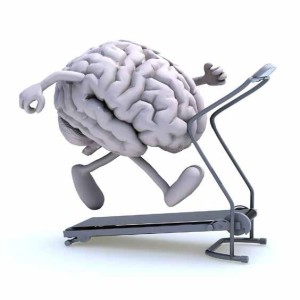 Results
Results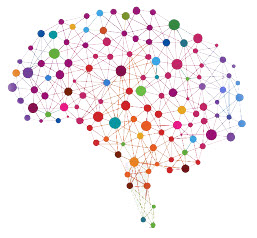 Testosterone Therapy to Improve and Maintain Brain Health
Testosterone Therapy to Improve and Maintain Brain Health When we talk about testosterone myths, this topic has its share of a bad rap as the “aggression” hormone that’s somehow the “root cause” of at least the majority of male-dominated social violence. While the absolutely invaluable evolutionary necessity of testosterone, along with its many evident positive effects, is indeed a primarily male-driven hormone that affects men in many of the ways we’ve previously discussed, it’s completely backwards logic to “blame” testosterone for the complex problem of societal violence (or the lack thereof for any absence of same).
When we talk about testosterone myths, this topic has its share of a bad rap as the “aggression” hormone that’s somehow the “root cause” of at least the majority of male-dominated social violence. While the absolutely invaluable evolutionary necessity of testosterone, along with its many evident positive effects, is indeed a primarily male-driven hormone that affects men in many of the ways we’ve previously discussed, it’s completely backwards logic to “blame” testosterone for the complex problem of societal violence (or the lack thereof for any absence of same). Testosterone Myths #1: Testosterone Increases Lead to Prostate Cancer
Testosterone Myths #1: Testosterone Increases Lead to Prostate Cancer Testosterone Myths #2: Increased Testosterone Leads to Violent Behavior
Testosterone Myths #2: Increased Testosterone Leads to Violent Behavior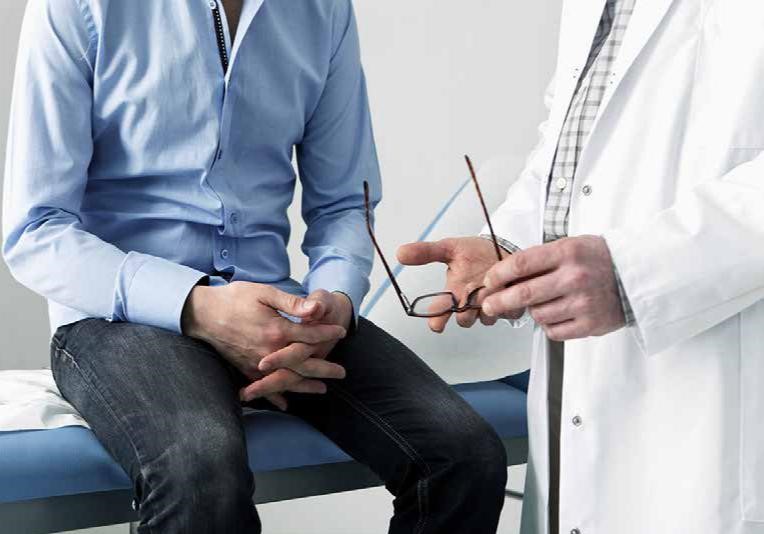 Testosterone Myths #3: Any Testosterone Increase Will Create Personal Social Conflict
Testosterone Myths #3: Any Testosterone Increase Will Create Personal Social Conflict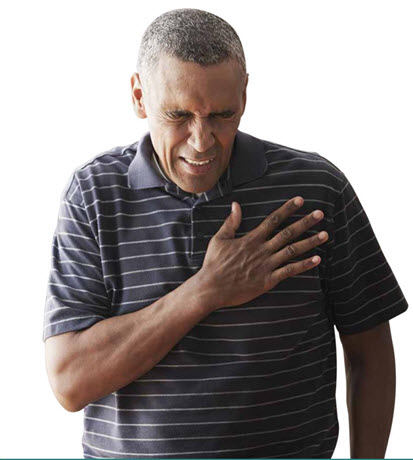 Testosterone Myths #4: Testosterone Treatment increases Cardiovascular Risk
Testosterone Myths #4: Testosterone Treatment increases Cardiovascular Risk